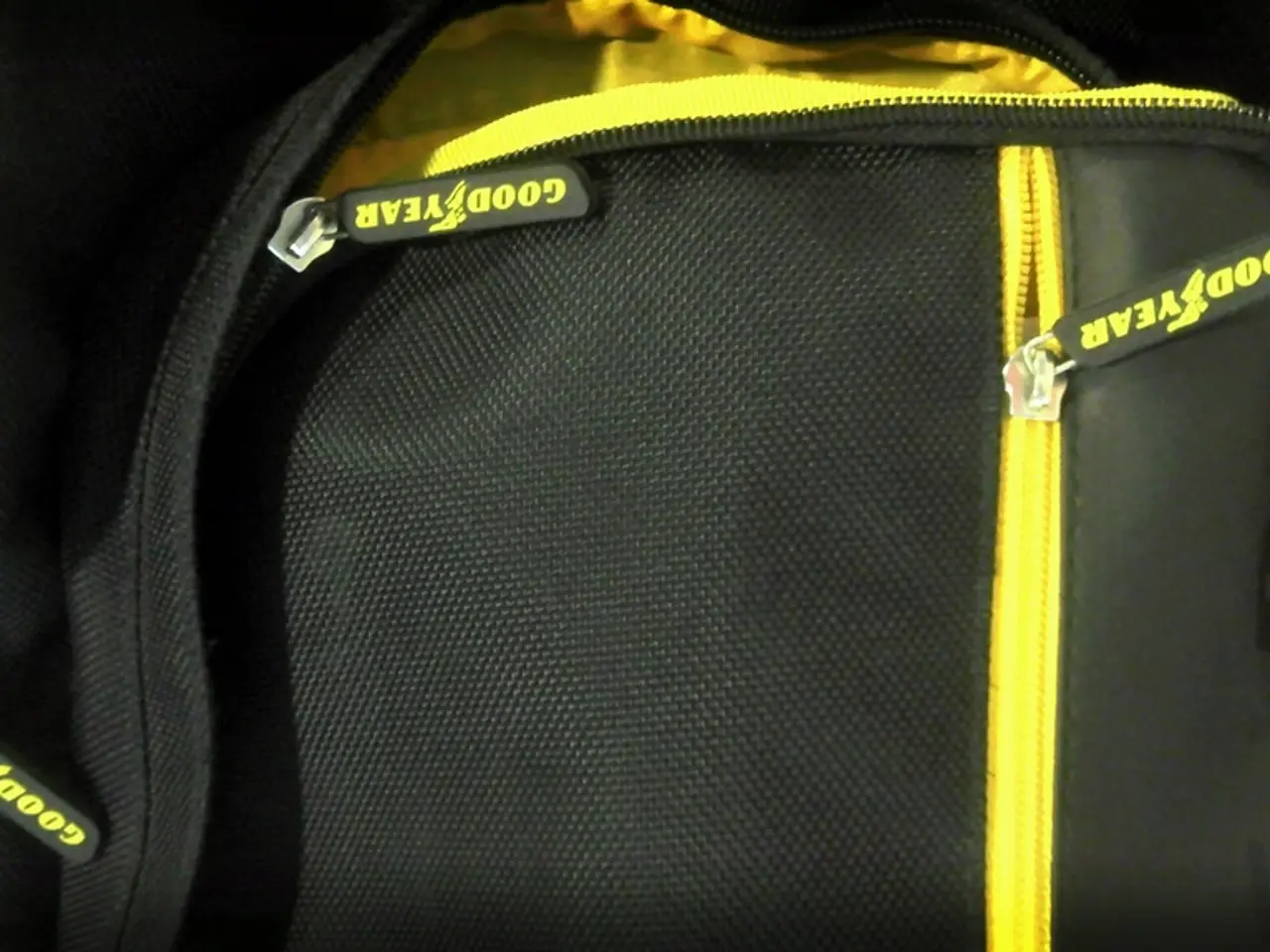Sustainability Gains Traction: The Increasing Popularity of Eco-Friendly Backpacks
In the ever-evolving world of fashion, a significant shift has taken place - the rise of sustainable backpacks. These eco-friendly bags are made from a variety of materials such as organic cotton, recycled PET bottles, hemp, and upcycled fabrics. The demand for these sustainable backpacks has surged as consumers become more conscious of environmental concerns.
The sustainable backpack movement doesn't just stop at material choice. Many brands align with fair labor practices, ensuring ethical treatment of workers and fair wages. This commitment to sustainability extends beyond the product itself, contributing to reducing landfill waste, resource-intensive manufacturing processes, and carbon emissions.
By adopting sustainable backpacks, consumers are contributing to a more eco-friendly world. This simple choice demonstrates that small choices can lead to significant positive changes. Using a sustainable backpack is a visual representation of one's commitment to a greener lifestyle, encouraging others to make similar choices.
Let's take a look at some of the top eco-friendly backpack brands in 2025:
- Terra Thread: Known for their Earth Sustainable Backpack, Terra Thread uses GOTS-certified 100% organic cotton canvas, which uses significantly less water and energy compared to conventional cotton. Their backpacks emphasize durability and use non-toxic and sustainable materials like organic cotton, hemp, or recycled polyester, with PFC-free water-resistant coatings and eco-conscious certifications such as GOTS or OEKO-TEX.
- Day Owl: This urban backpack features recycled waxed cotton canvas along with recycled linings and trims, including sustainable YKK zippers. The design prioritizes repairability, extending product lifespan, which is a key sustainability aspect. It has a slim profile with multi-functional organization pockets, supporting daily commuter needs while minimizing waste.
- Pacsafe: Known for anti-theft backpacks, Pacsafe now focuses on sustainability by using ECONYL material, made from recycled fishing nets and other ocean plastics. By 2021, 75% of their bags were from recycled materials, with a 2025 goal to eliminate all virgin plastic in their supply chain.
- Allegorie: Offers vegan leather backpacks made of around 80% apple leather from fruit waste combined with recycled polyester. They hold multiple certifications including PETA cruelty-free, Fair Trade, and OEKO-TEX, ensuring ethical and chemical safety standards. These backpacks are spacious for travel, made in the USA.
When choosing an eco-friendly backpack, consider the following key sustainable features:
- Use of organic cotton, hemp, or recycled polyester materials to reduce environmental impact.
- Avoidance of harmful chemicals with PFC-free coatings.
- Durable construction with reinforced stitching to extend product life.
- Certified materials such as GOTS, OEKO-TEX, Fair Trade.
- Use of recycled ocean plastics or food waste-based materials.
- Design for repairability and versatility to minimize waste over time.
These brands represent a growing trend toward backpacks that not only reduce carbon footprint and water usage but also promote circular economy principles through recycling, natural materials, and fair labor practices. By making the switch to sustainable backpacks, consumers can make a positive impact on the environment while also enjoying the benefits of a durable and stylish product.
Science has a significant role in the evolution of sustainable living, as it contributes to the development of eco-friendly materials like recycled PET bottles and organic cotton used in environmental-science products such as sustainable backpacks. The increasing demand for climate-change solutions also drives technological advancements in sustainable backpacks, making them more durable, versatile, and repairable. Lifestyle choices related to home-and-garden, including the adoption of sustainable backpacks, foster a culture of sustainable-living and contribute to a more environmentally-conscious world.





